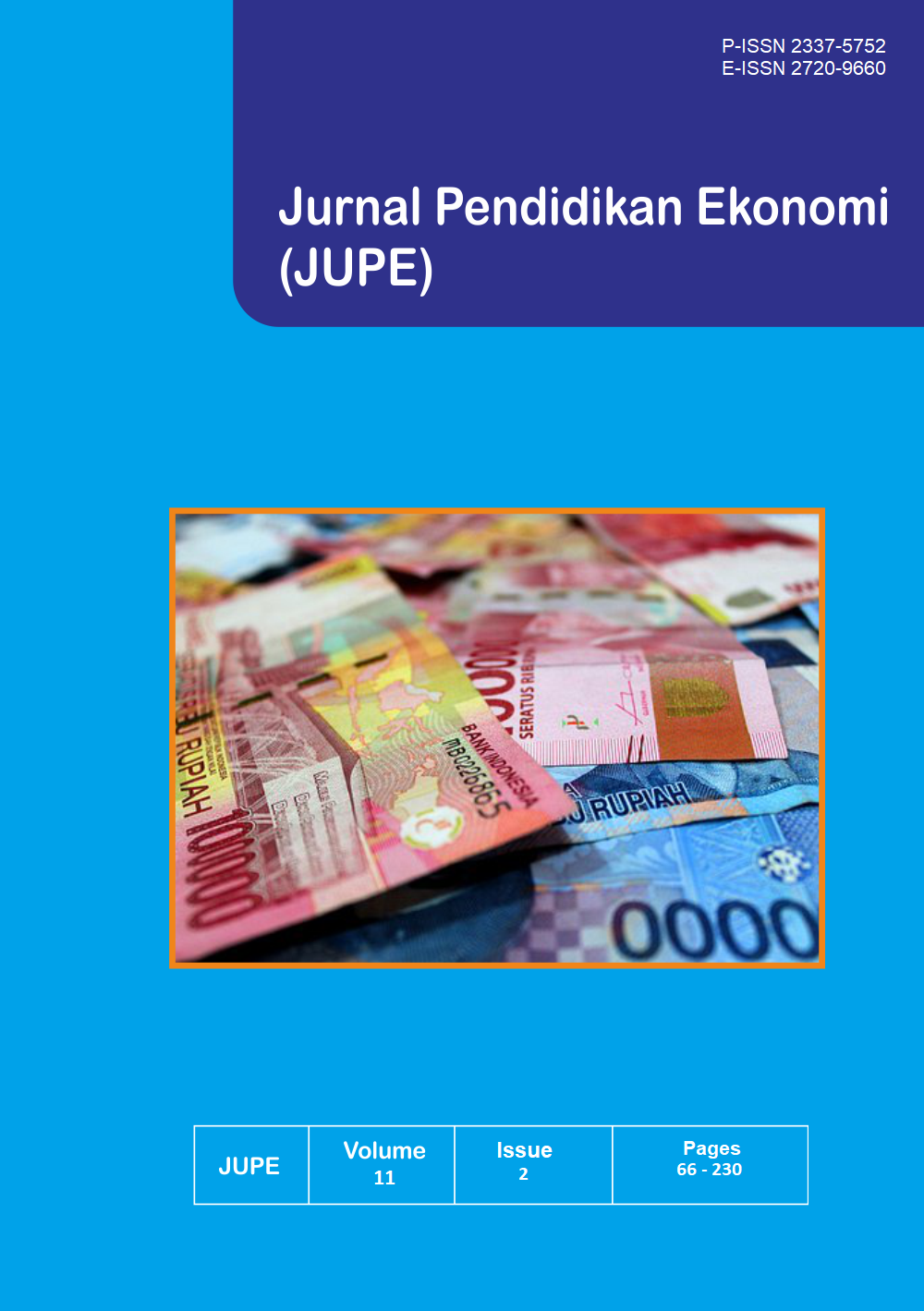Pengaruh Dukungan Relasional dan Dukungan Pendidikan terhadap Minat Berwirausaha Mahasiswa
DOI:
https://doi.org/10.26740/jupe.v11n2.p212-221Keywords:
relational support, educational support, interest in entrepreneurship, entrepreneurship educationAbstract
This study aimed to determine the effect of relational support and educational support on the interest in entrepreneurship for undergraduate students of Sebelas Maret University. This research was a quantitative descriptive study with a population of 24,753 students for the 2020/2021 academic year. The sampling technique used in this study was proportionate stratified random sampling, producing a sample of 394 student respondents. Data was collected through a questionnaire distributed via the Google form link. The data analysis used was multiple linear regression analysis with SPSS 25. The results shown from this study were: First, relational support had a positive and significant effect on the interest in entrepreneurship of undergraduate students of Sebelas Maret University. Second, educational support had a positive effect and significant on the interest in entrepreneurship for undergraduate students of Sebelas Maret University. Third, relational support and educational support simultaneously had a positive effect and significant on the interest in entrepreneurship of undergraduate students of Sebelas Maret University.
Downloads
Downloads
Published
How to Cite
Issue
Section
License
Copyright
- Authors retain copyright and grant the journal right of first publication with the work simultaneously licensed under a Creative Commons Attribution License that allows others to share the work with an acknowledgment of the work's authorship and initial publication in this journal.
 Abstract views: 285
,
Abstract views: 285
, PDF Downloads: 243
PDF Downloads: 243











